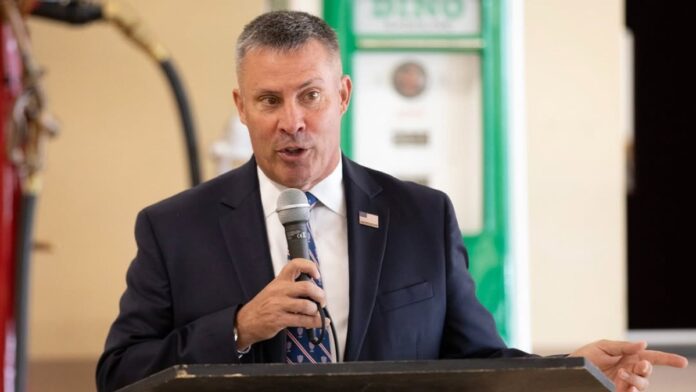Lawrence Tabas’s decision not to seek reelection as Pennsylvania Republican Party chairman sets the stage for a leadership change within the state GOP.
Tabas has been at the helm since 2019 and leaves the position after guiding the party through notable victories in the 2024 elections.
His exit has created an opening for new leadership, with State Senator Greg Rothman and former Trump campaign adviser Ted Christian positioning themselves as key contenders.
Christian, who initially entered the race with strong backing from venture capitalist Paul Martino, quickly became noteworthy in the contest.
His ties to Donald Trump, supported by his role as the Trump campaign’s state director in 2016 and his involvement in the 2020 election, gave him significant recognition among Trump loyalists in the party.
However, his bid was short-lived.
Christian’s decision to withdraw from the race and endorse Rothman signals a shift in the dynamics of the GOP leadership contest.
Rothman, a 58-year-old state senator with deep roots in Pennsylvania politics, now stands as the clear frontrunner.
His experience in the state House and Senate, along with his military background and involvement in the local GOP, position him as a seasoned leader who understands the intricacies of state politics.
Rothman’s vision for the party focuses on expanding its voter base and continuing the success seen in recent elections.
His leadership promises to be more centered on state-level political strategy rather than national allegiances, especially as the Republican Party faces an uncertain future without Trump on the ballot.
The strong backing Rothman has received from influential figures within the state GOP, including U.S. Senator-elect Dave McCormick, U.S. Representative Dan Meuser, and former Senate candidate Sean Parnell, highlights party leaders’ confidence in his ability to build on the party’s recent successes.
McCormick’s endorsement, in particular, carries a certain weight, as it underscores the importance of Rothman’s political connections and experience in moving the party forward.
Christian’s withdrawal, while disappointing for his supporters, ultimately reflects the shifting power dynamics within the party.
It suggests that Pennsylvania Republicans are leaning toward a leader who can consolidate the party’s position at the state level, especially as Trump moves out of the national spotlight.
At least in Pennsylvania, the GOP’s leadership appears ready to focus on growing the party’s voter base rather than continuing the intense national focus that has dominated recent years.
With the GOP set to reorganize in early 2025, Rothman’s path to chairmanship is now largely clear.
His leadership will likely mark a new chapter for the party, one that could prioritize broader voter outreach and strengthen the GOP’s influence in Pennsylvania for years to come.





